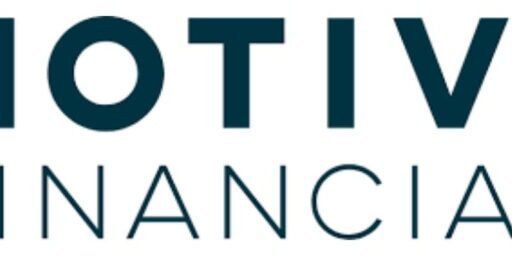Net Worth Update August 2014 – Sean Cooper
Welcome to the Million Dollar Journey August 2014 Net Worth Update – Team MDJ edition. A select group of readers were selected to be part of Team MDJ which was conceived after the million dollar net worth milestone was achieved in June 2014. Sean Cooper was selected as a team member and will post net worth updates on a regular basis. Here is more about Sean.
Profile:
- Name: Sean Cooper
- Age: 29
- Net Worth: $521,149
- Day Job: Employed with a major global pension consulting firm.
- Family Income: $50,000 (full-time job), $18,600 (rental income before expenses), $20,000 (approximate freelance income), $5,000 (part-time job)
- Goals: Mortgage paid off by 31, million dollar net worth by mid thirties.
- Notes: Owns a house, rents out main floor. Most of net worth is in the principal residence. No other debt besides mortgage.
I’ve been following FrugalTrader’s net worth updates for over five years, so when he asked me if I would be interested in posting my personal net worth updates I was honoured. Since this is my first net worth update with my preliminary numbers. I look forward to you joining me on my journey as my net worth (hopefully) grows over the coming months.
I attribute most of my financial success to goal-setting. By setting SMART goals, I’ve been able to accomplish everything I’ve set out to achieve. Not only did I graduate debt-free from university, I purchased a home on my own in one of Canada’s most expensive cities, Toronto, and became a first-time landlord at 27 years old.
My next stretch goal is to be mortgage-free by age 31. By maximizing the prepayment privileges on my mortgage, I plan to be mortgage-free by the end of 2015 (hopefully just before Star Wars Episodes VII debuts in theatres). I don’t plan to keep up this hectic pace forever; eventually I plan to settle down and perhaps get married.
On to the net worth numbers:
Assets: $628,239 (+0.00%)
- Cash: $7,361 (+0.00%)
- Registered/Retirement Investment Accounts (RRSP): $46,135 (+0.00%)
- Tax Free Savings Accounts (TFSA): $0 (+0.00%)
- Defined Benefit Pension: $24,421 (+0.00%)
- Non-Registered Investment Accounts: $322 (+0.00%)
- Principal Residence: $550,000 (+0.00%)
Liabilities: $107,090 (+0.00%)
- Principal Residence Mortgage: $107,090 (0.00%)
Total Net Worth: ~$521,149 (+0.00%)
- Started 2014 with Net Worth: $460,500
- Year to Date Gain/Loss: +13.17%
Some quick notes and explanations to common questions:
The Cash
The cash is held in a no fee chequing account with PC Financial. I use my chequing account for regular bill payments, as well as making lump sum payments on my mortgage.
Savings
My savings are held in a Tax Free Savings Account (TFSA) with Canadian Direct Financial. I mainly use my TFSA as an emergency fund and to save towards the balance owing when I file my personal income tax return at the end of April. Even though I contribute the maximum to my RRSP annually, I still have a large balance owing to the taxman since I receive rental income and income from self-employment (I’m a freelance writer).
You may be wondering why my balance is currently $0. At the beginning of the year I had $15,000 in my TFSA. However, this year was especially costly, as I had to spend $25,000 on repairs and renovations to my house, including a new retaining wall, side walk, front porch, sump pump, and eaves troughs. I plan to rebuild my emergency fund once I’ve maximized the prepayment privileges on my mortgage. If any more costly home repairs creep up, I can always slow down on prepaying my mortgage.
Where Do the Savings Come From?
I’m very frugal with my money. People are often amazed at how low my monthly expenses are. For most families the most costly household expenses are housing (mortgage or rent), transportation, and food. I’ve been able to minimize all three through lifestyle choices.
As a single first-time home buyer in Toronto, I decided to take on the added responsibility of being a landlord. Instead of living upstairs, I decided to live in the basement and rent the upstairs to a family. I got this brilliant idea from the host of HGTV’s Income Property, Scott McGillivray, who lived in his basement for nine years while renting out the upstairs unit to save money.
Instead of driving a car, I cycle the majority of the year and take public transit during wintertime. In my recent article in the Financial Post readers were amazed I only spend $100 per month on groceries. How have I managed to spend so little? I shop at discount supermarkets, price match, avoid fast food, and buy sale items in bulk. I’m also vegetarian, which helps me avoid paying the outrageous prices for meat.
How Have I Been Able to Pay Down My Mortgage So Quickly?
Despite an annual salary of only $50,000, I’ve been able to pay down over half of my mortgage in only two years through hard work and determination. Besides being a landlord, I’m a financial freelance writer and blogger. I also work part-time at a grocery store once a week. Through secondary sources of income, I’ve been able to maximize the prepayment privileges on my mortgage and maximize my RRSP contributions each year.
Real Estate
My real estate holdings consist of my primary residence. I purchased my house in August 2012 for $425,000 with a mortgage of $255,000. As I live in Toronto, one of Canada’s most expensive housing markets, I’ve based the value of my principal residence on comparable properties that have recently sold in my neighbourhood.
Pension
The pension amount listed above is the value of my defined benefit pension plan. I take the commuted value from my annual statement, which I receive by June 30th each year. I am fortunate to receive the commuted value on my annual statement, as most employers don’t provide it. This makes retirement planning a lot easier.
I've Completed My Million Dollar Journey. Let Me Guide You Through Yours!
Sign up below to get a copy of our free eBook: Can I Retire Yet?










Congrats on your financial success. Motivational, indeed.
Glad to see the openness toward life experience. Now that you have a very solid base, you should comfortably enjoy some of the experiences (not things) life has to offer. My wife and I are frugal but have never regretted spending money on cool lif experiences. As we look back on the past 8 years, many of our most memorable moments happened abroad.
As you add physical fitness goals to your regime, supplement use is fairly simple:
Whey protein directly after your workout
Cassein protein before bed.
One fish oil supplement daily, unless you eat fish 3+ times per week.
Creatine – 5 grams daily.
Possibly glutamine – but most commercial protein products contain 5 grams per scoop. Check ur labels.
A daily vitamin.
If you are eating enough then you shouldn’t need a weight gainer. Though, I understand the conflict of frugality vs. Spending on food/products that will compliment your fitness regime.
And for the regime – progressive overload will be key when you hit your first plateau.
Finally – 16 pounds in 2 months is aggressive. Gaining 1-2 pounds max per week is healthy. Any more and you’re likely adding fat.
All the best on the next leg of your journey.
Well said, Sampson. I’ve received many comments about my own net worth updates asking why I include my home, or why I don’t include on off-setting tax liability for my RRSP. Who cares? The point is that I keep the measurement consistent so that I can use it for my own tracking purposes.
Interesting to see the evolution of this blog, the authors, the commentators etc.
I’d like to dip into the principle residence in the NW statement. Whether right or wrong… who cares?
As nobleea pointed out, the statement is for personal use and to develop metrics for self-analysis. Separating different elements of the NW statement (contributions from different asset classes) and looking at those separately is the useful part.
Real millionaire or not, what does it matter? Nothing happens when you become a millionaire, ask FT. Well, maybe you decide you can sell off the blog or something, but balloons certainly don’t fall from the sky, and you may or may not be ‘Findependent’.
The Networth statement was hardly used amongst us poor Canadians until these types of blogs gave them higher profile.
What would be more interesting that a simple Networth statement would really be a Financial plan, but that would be more complex to share and less catchy than a simple NW statement.
I wish balloons had fallen from the sky… or suddenly one didn’t have to go to work.
I still think there is bias on networth calculations. A stock value goes up and down like crazy, why do we consider the value of the stock at a given day? tomorrow can be up 10% or down 10%
I would feel it would be fair to calculate a house and stocks according to inflation or average appreaciation, a house at 5% appreciation and stocks at the average returns rate.
Like you said, A Home owner can access his funds too, in one week, I have done it, at 70% of the house value. A house should not be considered anymore an asset that you cannot pull capital from, How many of us keeps refinancing to invest in stocks or income properties?
The owner will pay to access that capital the same way the renter has to pay rent to live under a roof. The owner would pay 2,500 in mortgage payments, the same way the renter would have to pay rent of 2,500 on a house for his family…. plus utilities, same as owner.
The owner also has the option to get an HLOC and use only what he needs at a given moment.
The owner even has the option to pull a small amount through private financing without even proving he works, at a low rate since he has 100% equity, in just a few days. The interest rate in this case would climb as the LTV increases.
I am not saying a home should be included at 100% of market value, -at least 70%?-, but comparing a renter with 250K that has to pay 2,500 in rent plus utilities ,with someone that howns a 1million dollar house and does not have to pay rent….
It feels like one more way the financial world to lure people to invest in funds and stocks instead of purchase assets on their own.
Many say an owner needs a roof, well, a renter needs a roof too and to pay rent as an extra cost…
Phil
re: “If the market values should be ignored for an own house, than do it for stocks too.”
Residential real estate (esp. primary residence) and stocks are not the same asset and are thus treated differently.
Here’s a great example:
“…it’s ridiculus to put a renter with 250K in stocks at a higher level then a home owner with no stocks and a house worth 1 million in todays market.”
The renter can access and utilize his $250k of capital probably within a week and with no disruption or alteration to the rest of their life.
If the home owner wants to access and utilize his $1M of capital he/she must sell it and become a renter, that is, not buy another primary residence. Either that or assume a loan against his capital, but then i) the amount of the loan will not be for the full amount of the capital, and ii) the home owner will be paying to access and utilize his/her own capital; neither situation is applicable to the stock owner renter.
A good rule of thumb — include principle residence in your net worth if you want to know how much you can borrow; exclude it if you want to know how much you can buy.
“Cooper uses “comparable properties that have recently sold in my neighbourhood, No wonder that in true net worth statements principal residences are always negated.”
Well, fine, but by the same parameters we should take stocks value as purchase price plus adjusted inflation, since tomorrow your stocks may be worth 30% less than today, or not even if the company closes overnight.
If the market values should be ignored for an own house, than do it for stocks too.
I understand some of the reasons for that, but it’s ridiculus to put a renter with 250K in stocks at a higher level then a home owner with no stocks and a house worth 1 million in todays market.
Interesting how Sean seems to be using some of the techniques recommended by David Trahair, the guy who wrote “Enough Bull”. I haven’t read the book, but I saw an interview with him, and he basically seemed to say to pay down your mortgage as fast a possible. Only when that is done, can you invest in laddered GICs. He recommended GICs to avoid the yo-yoing of the markets. Certainly seems plausible, especially for the general public, who by a large, is pretty unsophisticated at investing. Though GICs won’t even beat inflation in real terms, in my opinion.
I think what Sean will do here is: when the mortgage is paid off, he’ll go heavy on investible assets. He’ll probably get more than GICs, though.
I would like to see a study of a family of four, head of household 50K, increasing their net worth without additional income. Can it be Done?
I also discount 7% off each real estate asset for sales commission and sales cost in calculating net asset value. | watch for exact, or as close as possible, units sold on the market to adjust my pricing. It’s still difficult to assess but I need to put a number to the portfolio in order to see where I stand because banks loan on these numbers. Between high and low estimations, the difference can be a million dollars. Definitely not an exact science.
I’ve got sixty grand liquid in chequing…only 940,000 to qualify as an SST millionaire : )
@Kristy: What would a “REAL millionaire” look like to me? One with a million in liquid/investable assets. Period. No pretending, no smoke and mirrors, no feel-good pump. Thus, it’s fairly easy to impress me.
A house is a consumer durable. One continually has to pump money into it in order to maintain “market price”. I can buy a share of KO and hold it for 100 years without ever injecting more capital.
Since part of the house is utilized for income generation, a realistic action would be to calculate that percentage of the equity into net worth, but not the entire thing. So I’ll give ~$200k for the house instead of the posted ~$445k; netting ~$275k in net worth.
That’s great, but it’s not a million or even half a million.
@Andrew: A big Canadian apology for demanding absolute correctness in financial matters. My bad. However, this is a free personal finance internet blog, and as the mantra goes — you get what you pay for. :)